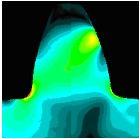Conference 3rd March 2010 9 a.m. Institute of Physics, London, UK
Experiment and Theory: making the best of both worlds
Various speakers
- Web page
- http://www.iop.org/Conferences/y/10/mechanics/page_38312.html
- Submitter
- Nicki Lewin
A seminar on hybrid and inverse methods in experimental mechanics.
Practical problems in stress and vibration cannot always be analysed first principles; this seminar explores the opportunities presented by hybrid experimental/theoretical methods, and covers the approaches used and examples of their application.
Engineers investigating the integrity of designs and components, and the dynamic/vibrational behaviour of structures, have a wide range of analytical, numerical and experimental techniques at their disposal. However, practical problems are not always sufficiently defined to analyse from first principles, and theoretical analyses generally require validation by comparison with experiments. Moreover, experiments generally involve inference of critical quantities (such as stress, natural frequency, damping etc.) from measurements of physical quantities (e.g. thermal emission, response to excitation etc.) rather than direct and unambiguous measurement.
In many cases the inference of these quantities from measured data takes the form of an inverse problem, in which the conventional direction of solving a problem (e.g. determining internal stresses from boundary conditions) is turned inside-out; effectively this involves fitting the input parameters of a conventional theoretical analysis to experimental data, a procedure which is both very powerful and subject to a number of practical and numerical pitfalls.
This seminar aims to explore such hybrid experimental/numerical techniques so as to:
•Exploit theoretical or numerical models in the interpretation of experimental results; •Design experiments to minimise the effects of experimental error and ill-conditioning; •Recover quantities such as contact stresses which are difficult or impossible to measure directly.
The seminar will begin with a short overview of the theoretical issues surrounding inverse and hybrid problems, will explore various aspects of the theory of inverse problems, and will put these issues into context via a sequence of case studies and examples. These topics will be presented by a variety of leading experts in the subject providing a balance between theoretical and practical material, and between static and dynamic problems.
